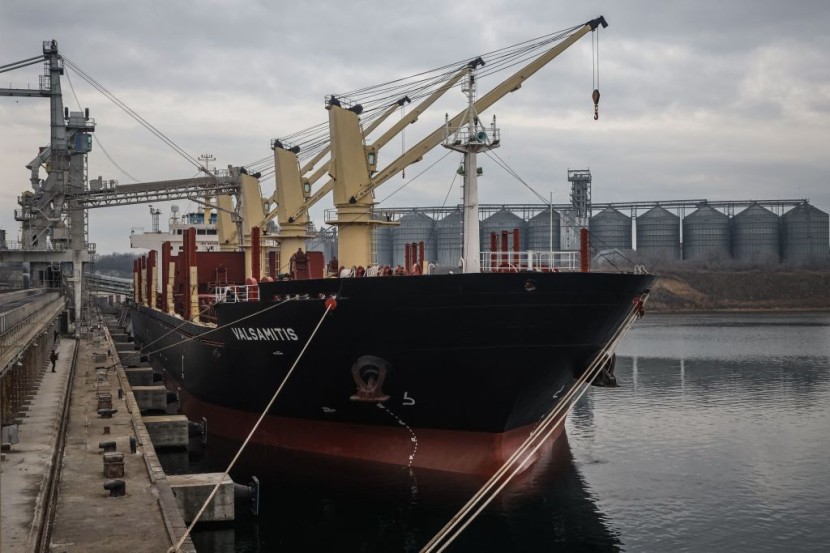
The United Nations issued a "mutually beneficial" proposal in an attempt to save the Black Sea Grain deal from collapsing
The proposal seeks to have Russia, Turkey, and Ukraine conduct preparatory works for the transit of ammonia from Moscow
This comes after the Black Sea Grain deal was agreed to by involved parties to include more Ukrainian ports and other cargo
The United Nations has issued a "mutually beneficial" proposal that it believes would save the Black Sea Grain deal which is on the brink of collapse amid rising global tensions.
The UN's proposal involves Ankara, Kyiv, and Moscow starting preparatory work for the transit of Russian ammonia through Ukrainian territory. It is meant to salvage the Black Sea Grain deal, said a source familiar with the talks.
UN Issues 'Mutually Beneficial' Proposal
As the preparatory work begins, the UN wishes to have parallel talks to be held regarding the potential widening of the Black Sea Grain deal. That particular agreement was something that involved parties accepted last July to include more Ukrainian ports and other cargo, as per Reuters.
Last month, Russia agreed to a two-month extension of the original deal but argued that the initiative will stop unless other countries fulfill an agreement that seeks to overcome barriers to Moscow's grain and fertilizer exports.
Both Turkey and Ukraine have signed off on the new proposal, which was designed to improve operations in the Black Sea grain export corridor. However, Russia has not yet responded to whether or not it agrees with the new proposal.
UN spokesperson Stephane Dujarric said during a press briefing that conversations between involved parties are still ongoing. He added that the Secretary-General put forward a few ideas to the involved parties that seek to improve the facilitation of the work of the Joint Coordination Center.
The situation comes as Ukrainian President Volodymyr Zelensky warned that the Pivdennyi seaport is now de facto blocked. He added that if Russia continues to get away with blocking navigation in the Black Sea, it could lead to other maritime countries of the world suffering consequences, according to Yahoo News.
Black Sea Grain Deal on the Verge of Collapse
During his nightly video address, Zelensky said that the entire world is aware of the fundamental role that Ukraine's maritime grain exports play in global food security. He added that security in the Black Sea as well as the effectiveness of international navigation were both crucial security factors.
Zelensky noted that more than one and a half million tons of agricultural products have accumulated in the Pivdennyi seaport. This includes grain, which at least 10 countries are expecting to receive.
The Ukrainian president said that these nations include Turkey, Egypt, Bangladesh, and China. If there is less food supplied to these nations, then it would result in higher food prices for their population.
He warns that the continued blockade of the seaport is creating a significantly serious risk for various countries. Zelensky added that Moscow is still trying to exploit its relations with the affected nations.
On the other hand, Russia's Foreign Minister Sergei Lavrov issued warnings that the Black Sea Grain deal would no longer function if Moscow's demands are not met. The deal that was achieved last July requires the UN to assist Russia in overcoming any obstacles related to its grain and fertilizer exports. However, Lavrov said that these provisions are not being fulfilled "at all," said Channel News Asia.




